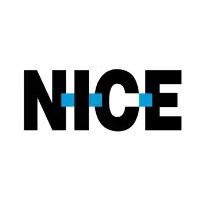We’ve all heard the saying “Happy agents make happy customers.” Corporate culture is one of the greatest influencers for happy agents, and it starts with a strong cultural foundation.
There are countless opinions on what makes a great culture – some say it starts at the top with the leadership, others at the bottom with the frontline, and everywhere in between. I believe in the contact center it starts at the beginning, by hiring the right profile of agent that fits your contact center. While it can be difficult to assess someone’s true essence and ethics in the hiring process, there are processes that can help better discern what’s underneath that shiny, eager candidate’s veneer.
As a contact center manager, I saw a funny paradox when it came to hiring agents versus all other roles within the organization. When hiring for other roles, the process was thorough and lengthy, characterized by multiple interviews with different leaders, and a barrage of situational interview questions. If we didn’t like the initial pool of candidates, we asked the recruiter to go back to the drawing board. The right employee was worth the wait.
When we hired agents, we typically had one quick interview, asked a few questions about their customer service experience, and then made our selection. Sometimes, we would rely on a recruiting agency to send us a contactor and cross our fingers that they’d be a good fit.
What was the result? Attrition within the first couple of weeks or months, usually due to misalignment with the company culture. This not only cost the organization money, but also caused additional disruption to our customers and the remaining agents who had to pick up the slack of another vacancy on the team. Studies show that of all the roles within the organization, frontline contact center agents have one of the greatest impacts on customer experience and loyalty. So why do we spend so much time vetting employees for back-office, strategic roles, but don’t do the same for those frontline folks?
It makes more sense in the long run to take some time and find the “right” agent. Incorporating behavioral or situational interview questions into your agent interview process can help in assessing a candidate’s thought process and true propensity to provide exceptional service. Some examples include:
- Tell me about a time where you provided exception customer service. What made it great?
- Tell me about a time when you had deliver news to a customer that you knew they weren’t going to like. How did you handle it? How did they react?
- Tell me about a time where you had to deal with an angry or irate customer.
- Tell me about a time when you didn’t know the answer to a customer’s question.
- When responding to a customer how do you decide what information to include and what to leave out?
- Tell me about a time when you didn’t agree with an organizational process or policy.
Strong candidates will provide specific examples and walk you through the situation, the action they took, and the result. Watch out for candidates who speak in generalities and hypotheticals, which can indicate a lack of experience.
Incorporating questions like these into your agent interview process will help you identify better candidates the first time, ultimately ensuring a better experience for your customers and a more positive contact center culture.




